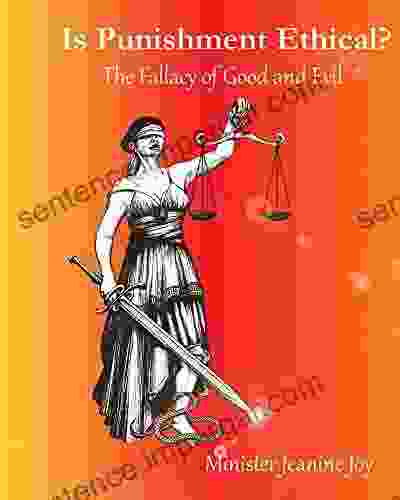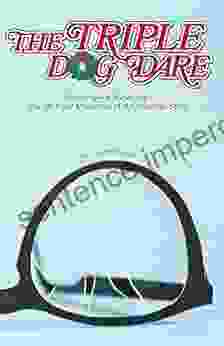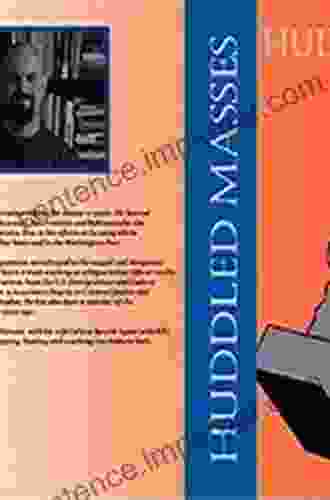The Fallacy of Good and Evil: Unveiling the Myth of Moral Certainty


5 out of 5
| Language | : | English |
| File size | : | 930 KB |
| Text-to-Speech | : | Enabled |
| Screen Reader | : | Supported |
| Enhanced typesetting | : | Enabled |
| Word Wise | : | Enabled |
| Print length | : | 144 pages |
| Lending | : | Enabled |
For centuries, humanity has grappled with the concepts of good and evil, seeking to establish objective moral guidelines and define right and wrong. However, the book "The Fallacy of Good and Evil" challenges this conventional wisdom, arguing that the binary perception of morality is flawed and that our understanding of ethics is inherently subjective and influenced by a multitude of factors.
The Subjectivity of Morality
The book explores the idea that moral beliefs are not universally shared but rather shaped by cultural norms, personal experiences, and cognitive biases. What is deemed "good" or "evil" in one society can be perceived differently in another, highlighting the contextual nature of morality.
For example, in some cultures, it is considered acceptable to engage in revenge killings for perceived wrongs, while in others, such actions are strongly condemned. This demonstrates that moral judgments are often subjective and rooted in cultural beliefs and social norms.
The Influence of Personal Biases
"The Fallacy of Good and Evil" also delves into the role of personal biases in shaping our moral compass. Self-interest, confirmation bias, and cognitive dissonance can lead us to distort information and rationalize our choices even when they conflict with our perceived moral standards.
For instance, we may be more likely to see our own actions as justified while attributing negative intentions to others. This bias can contribute to moral blind spots and hinder our ability to make impartial judgments.
Cognitive Dissonance and Moral Dilemmas
The book examines the cognitive discomfort that arises when our actions conflict with our moral beliefs. This cognitive dissonance can lead to feelings of guilt, shame, or rationalization to resolve the tension.
Moral dilemmas, in particular, test the limits of our moral convictions and often require us to confront difficult choices where there is no clear "good" or "evil" path. "The Fallacy of Good and Evil" explores how our biases and emotions can influence our decision-making in such situations.
Implications for Ethical Reasoning
The insights presented in the book have significant implications for ethical reasoning and moral decision-making. If morality is not objective but rather subjective and influenced by various factors, it becomes crucial to approach ethical dilemmas with humility, self-awareness, and a willingness to engage in critical thinking.
Recognizing the potential for bias and the limitations of our moral frameworks allows us to make more informed and ethical decisions, even in the face of uncertainty.
"The Fallacy of Good and Evil" is a thought-provoking exploration of the complex nature of morality. It challenges the traditional binary view of good and evil, revealing the inherent subjectivity and relativity of ethical beliefs. By understanding the influences that shape our moral perceptions, we can cultivate greater awareness, empathy, and a more nuanced approach to ethical decision-making.
This insightful book invites us to question our assumptions, confront our biases, and embrace a more inclusive and compassionate moral perspective.
5 out of 5
| Language | : | English |
| File size | : | 930 KB |
| Text-to-Speech | : | Enabled |
| Screen Reader | : | Supported |
| Enhanced typesetting | : | Enabled |
| Word Wise | : | Enabled |
| Print length | : | 144 pages |
| Lending | : | Enabled |
Do you want to contribute by writing guest posts on this blog?
Please contact us and send us a resume of previous articles that you have written.
 Book
Book Novel
Novel Page
Page Chapter
Chapter Text
Text Story
Story Genre
Genre Reader
Reader Library
Library Paperback
Paperback E-book
E-book Magazine
Magazine Newspaper
Newspaper Paragraph
Paragraph Sentence
Sentence Bookmark
Bookmark Shelf
Shelf Glossary
Glossary Bibliography
Bibliography Foreword
Foreword Preface
Preface Synopsis
Synopsis Annotation
Annotation Footnote
Footnote Manuscript
Manuscript Scroll
Scroll Codex
Codex Tome
Tome Bestseller
Bestseller Classics
Classics Library card
Library card Narrative
Narrative Biography
Biography Autobiography
Autobiography Memoir
Memoir Reference
Reference Encyclopedia
Encyclopedia James Carl Nelson
James Carl Nelson Jake Brown
Jake Brown Janet Fizz Curtis
Janet Fizz Curtis Jason Zimba
Jason Zimba Jayne Amelia Larson
Jayne Amelia Larson James Axtell
James Axtell Jeff Guinn
Jeff Guinn Jason Williams
Jason Williams Janet Vormittag
Janet Vormittag Jan Jacobs
Jan Jacobs James R Knight
James R Knight James Mcconvill
James Mcconvill James L Brewster
James L Brewster Jan Saunders Maresh
Jan Saunders Maresh Jeanette Zwingenberger
Jeanette Zwingenberger James P Coan
James P Coan Jeff Klinkenberg
Jeff Klinkenberg Jameel Jaffer
Jameel Jaffer Jamie Stonebridge
Jamie Stonebridge Jang Kyo Kim
Jang Kyo Kim
Light bulbAdvertise smarter! Our strategic ad space ensures maximum exposure. Reserve your spot today!
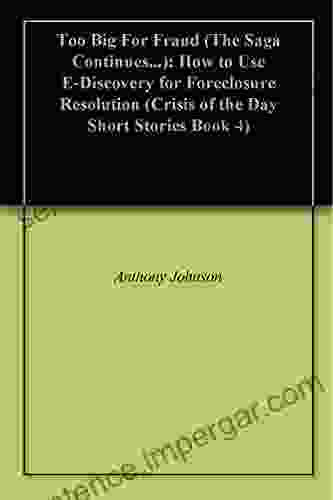
 Harry CookToo Big For Fraud: The Saga Continues - A Riveting Journey into the Heart of...
Harry CookToo Big For Fraud: The Saga Continues - A Riveting Journey into the Heart of...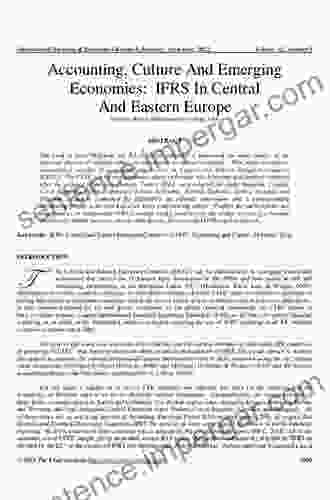
 Jackson BlairAccounting in Central and Eastern Europe: Research in Accounting in Emerging...
Jackson BlairAccounting in Central and Eastern Europe: Research in Accounting in Emerging... Walt WhitmanFollow ·8.2k
Walt WhitmanFollow ·8.2k Leo TolstoyFollow ·2.6k
Leo TolstoyFollow ·2.6k Ross NelsonFollow ·13.6k
Ross NelsonFollow ·13.6k Oscar WildeFollow ·9.1k
Oscar WildeFollow ·9.1k Clayton HayesFollow ·11.5k
Clayton HayesFollow ·11.5k Henry HayesFollow ·18k
Henry HayesFollow ·18k John ParkerFollow ·15.3k
John ParkerFollow ·15.3k George MartinFollow ·9.2k
George MartinFollow ·9.2k

 Jacob Foster
Jacob FosterPrinciples and Persons: The Legacy of Derek Parfit
Derek Parfit's 1984 book,...

 Leo Mitchell
Leo MitchellPartners For Life: Raise Support For Your Missionary Work...
Are you a missionary or ministry leader...
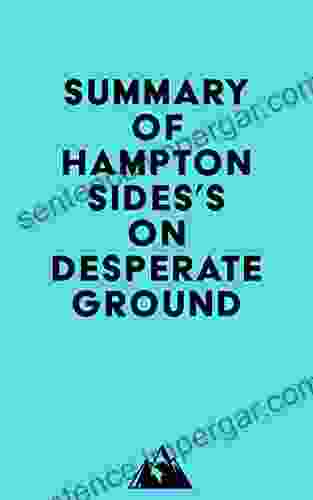
 Blake Kennedy
Blake KennedyOn Desperate Ground: A Gripping Account of World War II's...
Hampton Sides' "On...

 Duane Kelly
Duane KellyCriminal Minds Sociopaths Serial Killers And Other...
In the realm of criminology,...

 Craig Blair
Craig BlairHome Repair: The Ultimate Guide to Fix, Maintain, and...
Welcome to the...

 Elmer Powell
Elmer PowellThe Organic Grower Guide to Mycorrhizae Science for...
Unlock the Secrets of Soil...
5 out of 5
| Language | : | English |
| File size | : | 930 KB |
| Text-to-Speech | : | Enabled |
| Screen Reader | : | Supported |
| Enhanced typesetting | : | Enabled |
| Word Wise | : | Enabled |
| Print length | : | 144 pages |
| Lending | : | Enabled |


